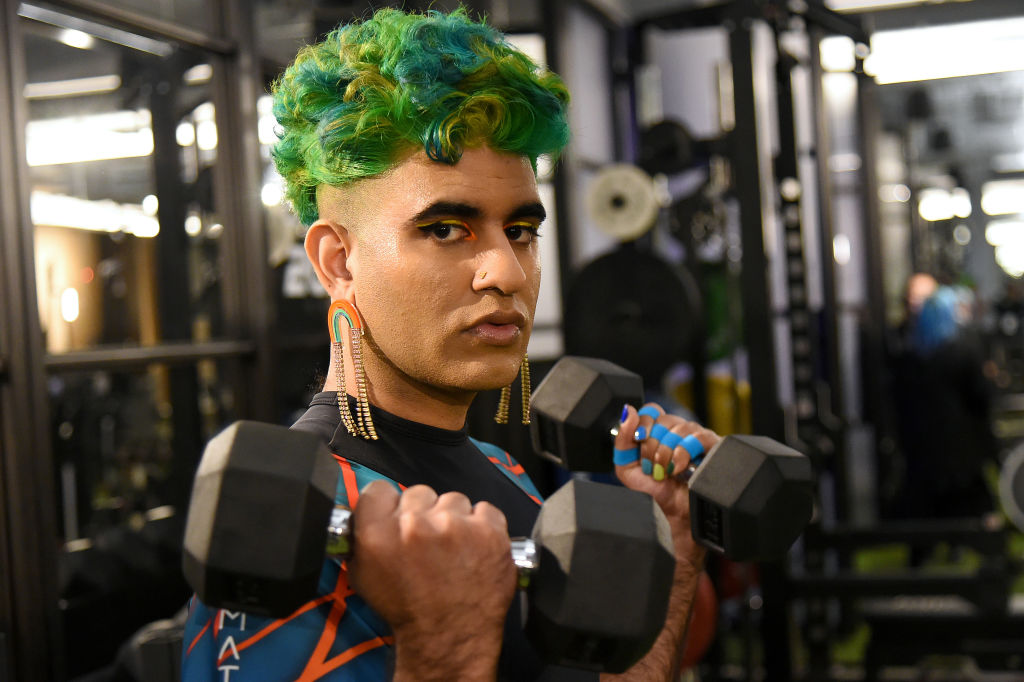Wokeness’s war against sex and gender descends to clownish levels.
Feminist Phails

A top example of “toxic” masculinity is of their own creation.
There are many reasons why I don’t describe myself as a feminist.
For one, I’m sick of hearing complaints all the time, and not just in the Barbie movie, about the unattainable beauty standards created by men that are suffocating women. Nine times out of ten, if I’m in a discussion with a self-proclaimed feminist, this is one of the top three issues she brings up. She rarely mentions the rates at which women are trafficked globally or how men pretending to be women are robbing real women of their spaces and opportunities.
But if I ask said woman whether or not she’s having trouble getting a man’s attention, she typically answers, “No, not really.” I can’t help thinking how lucky modern feminists are that this is a leading issue to which they are able to devote their full energy.
The reality is, men might have physical preferences for women, which can be traced to biological instincts. But it’s not like it doesn’t go both ways. Height is the most commonly found example of a physical preference that women have for men. You’d be hard-pressed to find a woman who truly would not prefer a man who is six feet or taller. How many TikToks have gone viral where women are making fun of guys who lie about their height? Men fudge the numbers because it is undisputed that the majority of women find taller men attractive. Women have no problem expressing their preference for men who are tall, muscular, blonde/blue eyed, or dark/moody looking. Yet they tend to go into fits when men express a preference for a woman who isn’t overweight. How DARE he.
It isn’t untrue to say that there’s an unrealistic expectation for women to look a certain way. Yet this isn’t driven by men, but largely by women. We saw the way the Kardashians started looking after a few years of success and plastic surgery and realized that this new look was being promoted as what it means to be beautiful in the 21st century. We watched them become the faces of makeup brands, designer models, and TV icons. Kim K. became an ideal for women everywhere. And it’s only become worse as social media has reached its tentacles into our lives. The fact that women have a tendency to compare themselves to other women online is widely acknowledged. We put this pressure on ourselves to fit the trends, to look a certain way, and we blame it on men. But do men care as much as we do?
Truth is, in the modern dating scene, men are getting rejected by women at much higher rates than vice versa. Women are naturally more selective, and it almost becomes a social bragging point to see how many men a woman can reject. Men are praised for getting phone numbers and being able to hook up with as many women as they can; women are praised for being able to turn guys away. Unless he’s Brad Pitt, the average man is more likely going to get rejected when he approaches a woman at a party or bar than he is getting a real phone number.
Both men and women can suffer from feeling like they can’t find someone to be with them; loneliness is something felt by everyone to some degree. But it is awfully strange that men are being slammed for holding women to unobtainable standards of beauty when it’s women who are holding themselves AND men to these standards—yet they’re big mad about it.
Women: if you don’t like the current beauty standards, stop blaming men, delete your Instagram, and don’t compare yourself to millionaire models.
I can’t call myself a feminist, because I can’t get behind a movement which names beauty standards as a top tier issue. If the feminist movement suddenly devoted their time and resources to ending human trafficking, ending abortion, and ending pornography, all of which are far more important issues, I would be first in line waving the feminist flag. If you’re mad that your husband calls you beautiful instead of smart, or that you don’t look like a Kardashian but somehow feel the need to spend emotional energy engaging in that comparison, know that you are one of the most privileged women in the world.
The American Mind presents a range of perspectives. Views are writers’ own and do not necessarily represent those of The Claremont Institute.
The American Mind is a publication of the Claremont Institute, a non-profit 501(c)(3) organization, dedicated to restoring the principles of the American Founding to their rightful, preeminent authority in our national life. Interested in supporting our work? Gifts to the Claremont Institute are tax-deductible.
A generation grows tired of the tiresome
They hate her ‘cause they ain’t her.
The regime is desperate to impose polyamory.
Online pornography and masturbation are causing immense damage.
How Call Her Daddy made bank off of lost young women.






